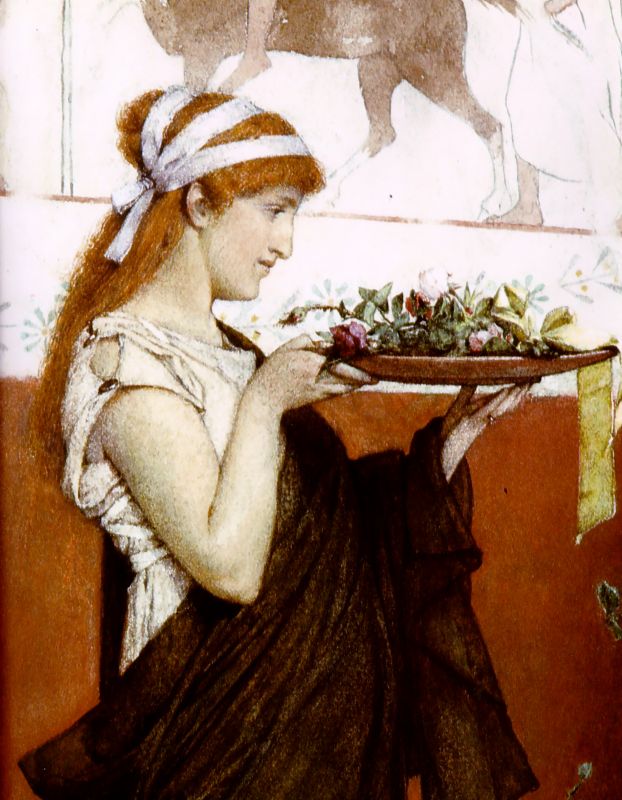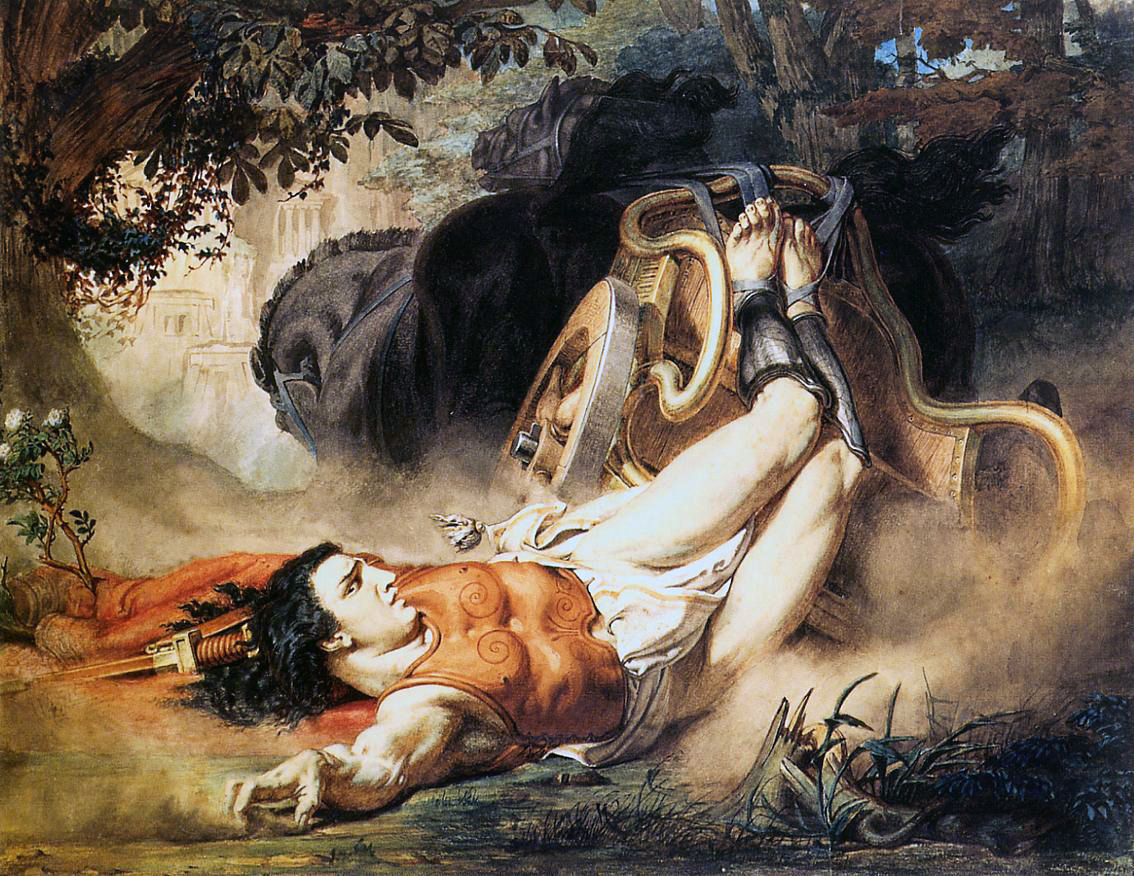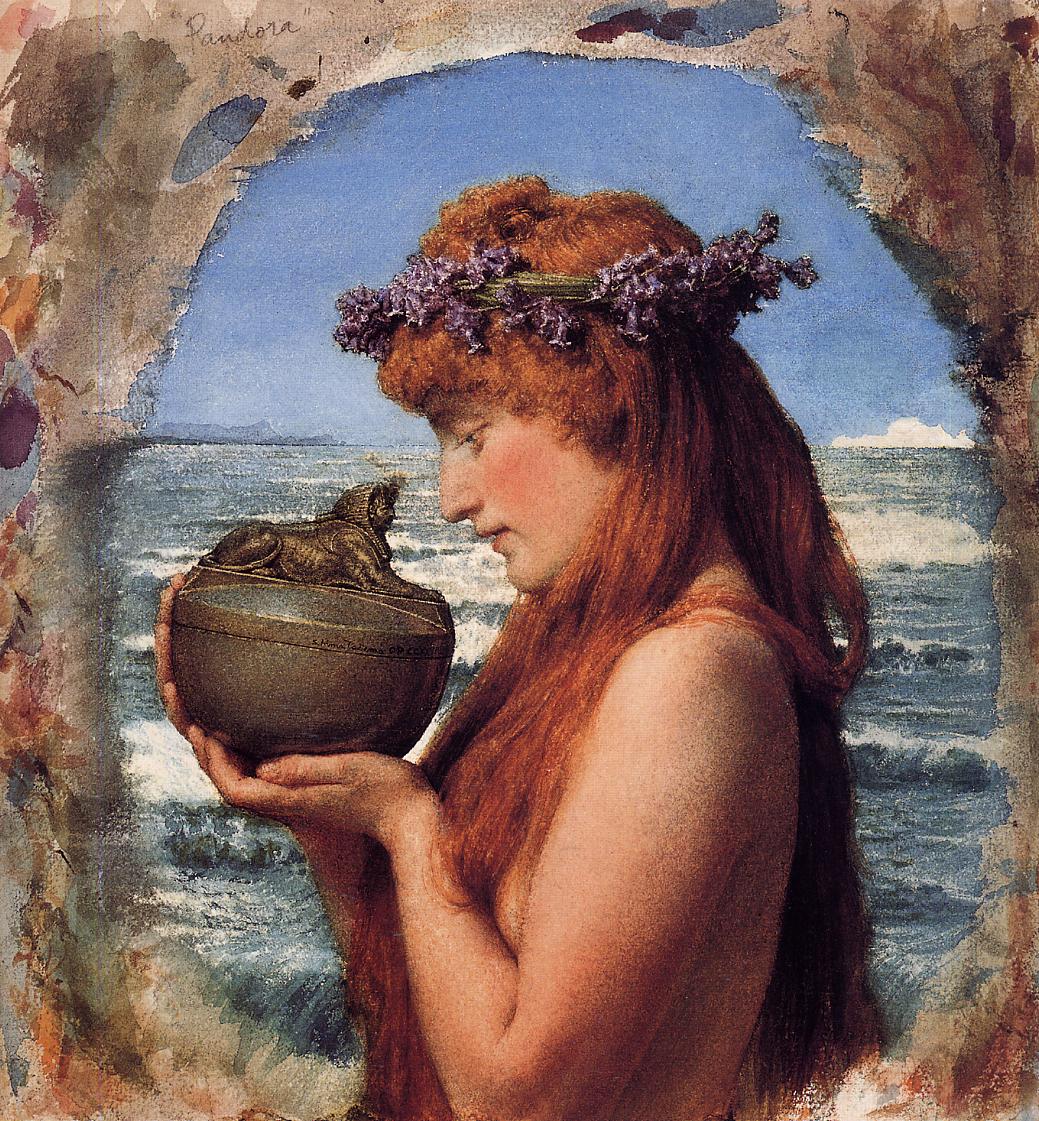A classical-subject painter, he became famous for his depictions of the luxury and decadence of the Roman Empire, with languorous figures set in fabulous marbled interiors or against a backdrop of dazzling blue Mediterranean Sea and sky. Though admired during his lifetime for his draftsmanship and depictions of Classical antiquity, his work fell into disrepute after his death, and only since the 1960s has it been re-evaluated for its importance within nineteenth-century English art.
While Albe-Tadema painted what he believed the Roman age to be like, much of his work paints a picture that could just as easily apply to ancient Hellas. This is why I would like to share some of his paintings with you today.
Escena Pompeyana (1868)
Das Fest der Weinlese Anagoria (1871)
Offerta Votiva (1873)
Hippolytus (1860)
Es Arethe (1903)
The Education of the Children of Clovis (1861)
Pandora (1881)
Phidias Showing the Frieze of the Parthenon to his Friends (1868)
.jpg)


_(14595044027).jpg)


No comments:
Post a Comment